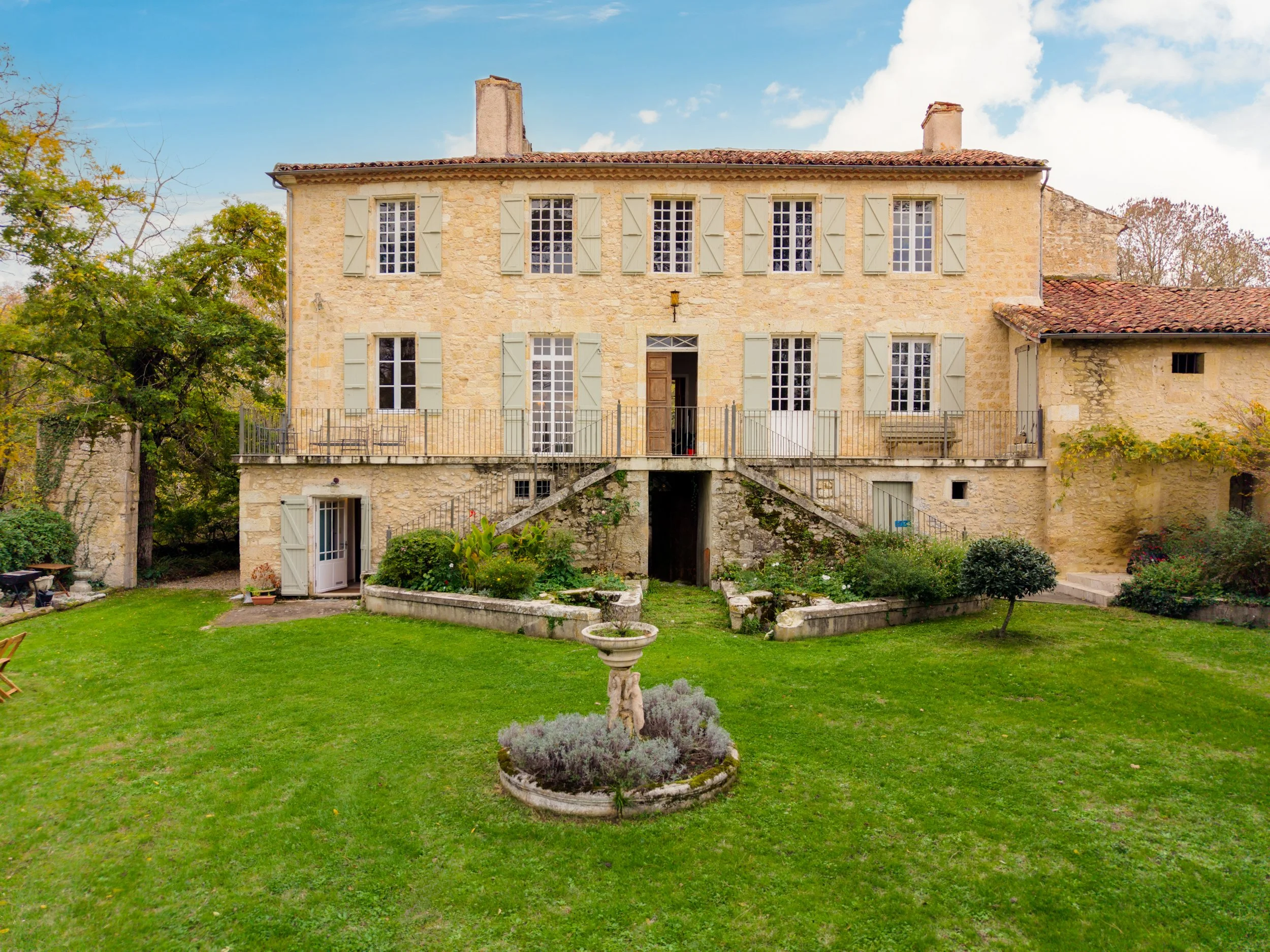THE Château
Dating back to the 12th century, Château de Pléhaut still features its original 13th-century tower. Historical records refer to it as Pléhot, likely meaning a castle built at a confluence - aptly describing its position on a strip of land where the Baïse River meets the Pléhot stream.
In the Middle Ages, the seigneury of Pléhot was ruled by just two noble families and shared its history with neighbouring Herrebouc, now our neighbouring vineyard. Up until the 19th century, the estate remained home to successive Lords of Pléhot.
Surrounded by fertile land once worked by its tenants, the château enjoys its own natural spring and overlooks the gentle Baïse River—one of five great rivers flowing from the Pyrenees to the Gironde estuary near Bordeaux.
This peaceful backwater of South West France is quietly becoming a holiday retreat for those seeking all the best that rural France has to offer. Finding it's place in the ancient Duchy of Gascony, this is a country of rolling fields, medieval hilltop villages, sun and sunflowers, terracotta roofs on sandy coloured stone farmhouses, bleached blond cattle and views, away on the southern horizon, of the jagged snowy tops of the Pyrenees.
One of the most lightly populated of the 96 mainland departments in France, the Gers is easily approached from airports or motorways, but once here, the roads become slow and empty, stretching across the tops of hills and affording superb distant views.
There are no motorways, no airports, no heavy industrial areas, and virtually no trains or buses in this most pastoral of departments. You come here for melons, duck, Armagnac, mushrooms, excellent Gascon wines from small domains, empty back roads, and some of the most welcoming people you will ever meet. And you come to relax
The province of Gascony, which had existed since Roman times, was inherited in 1152 by Henry 11 of England when he married Eleanor of Aquitaine. For 300 years the English Kings, who were also the Dukes of Aquitaine, ruled this warm, fertile and productive land with, if records are correct, a light touch: Believing that this, arguably England's first 'colony', would be best ruled by getting the inhabitants on side, it was largely left to itself.
The laws of the land being drawn up from it's existing culture and tradition, the English nobility were mostly content to receive the Gascon wines shipped out from Bordeaux and export, in return, wheat. Any Gascon 'paysan' in the middle ages would have had a small vineyard on his plot and this area is still full of small private domains where excellent 'Boutique' wines can be found.
In 1451, with the English having become far more interested in pillaging the north of France, ('On St Crispin's Day' and all that) than preserving it's vineyards in the South West, the Duchy of Gascony eventually fell to the French where it remains of course to this day. Gascony no longer exists on the map, but the people are still here.


